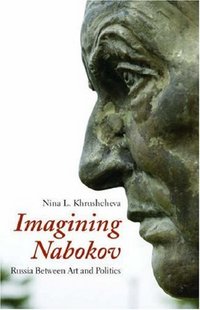

Purchase
Russia Between Art and Politics
Yale University Press
January 2008
On Sale: January 9, 2008
256 pages
ISBN: 0300108869
EAN: 9780300108866
Hardcover
Add to Wish List
Fiction
Vladimir Nabokov’s “Western choice”—his exile to the West
after the 1917 Bolshevik Revolution—allowed him to take a
crucial literary journey, leaving the closed
nineteenth-century Russian culture behind and arriving in
the extreme openness of twentieth-century America. In
Imagining Nabokov: Russia Between Art and Politics,
Nina L. Khrushcheva offers the novel hypothesis that because
of this journey, the works of Russian-turned-American
Vladimir Nabokov (1899–1977) are highly relevant to the
political transformation under way in Russia today.
Khrushcheva, a Russian living in America, finds in Nabokov’s
novels a useful guide for Russia’s integration into the
globalized world. Now one of Nabokov’s “Western” characters
herself, she discusses the cultural and social realities of
contemporary Russia that he foresaw a half-century earlier.
In Pale Fire; Ada, or Ardor; Pnin; and
other works, Nabokov reinterpreted the traditions of Russian
fiction, shifting emphasis from personal misery and communal
life to the notion of forging one’s own “happy” destiny. In
the twenty-first century Russia faces a similar challenge,
Khrushcheva contends, and Nabokov’s work reveals how skills
may be acquired to cope with the advent of democracy,
capitalism, and open borders.
Comments
No comments posted.
Registered users may leave comments.
Log in or register now!
| 


 © 2003-2025 off-the-edge.net
all rights reserved Privacy Policy
© 2003-2025 off-the-edge.net
all rights reserved Privacy Policy